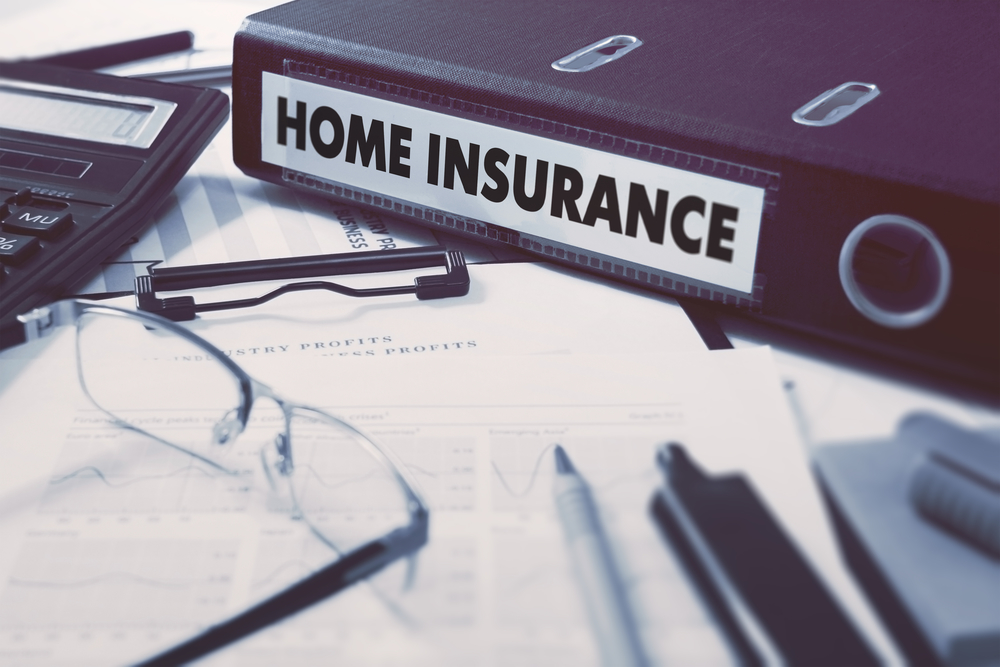Will a Home Insurance Company Save You Money in the Long Run?
When you become a homeowner, there are many expenses that you may not have known about until you sign your papers. Perhaps you thought you would owe your mortgage payment and that would be your only monthly expense related to your house. Then, you learn that you should also have homeowner’s insurance and the question becomes is it worth it? Will a home insurance company save you money in the long run?
Will a Home Insurance Company Save You Money in the Long Run?
What Is Home Insurance?
Home insurance, otherwise known as homeowner’s insurance, is financial protection for your house in case it is damaged or destroyed through certain hazards such as fire, wind, hail, vandalism, explosions, falling objects, damage from aircraft, damage from motor vehicles, damage from the weight of snow or ice, and other standard “named perils.” You pay a premium, usually monthly, and if you need to make a claim for damage, the insurance company reimburses you according to plan provisions.
Home insurance also covers your liability if someone is injured on your property or if someone living in your home damages someone else’s property. Your belongings inside your house and most detached structures like garages and fences are also covered to certain limits, which are determined when you first purchase the policy. There are specific events that aren’t covered by home insurance, including floods and sewer backups, unless you purchase additional special policies, which are sometimes referred to as riders.
Home Insurance May Be Required
Homeowner’s insurance is not required by law in any state in the U.S.; however, if you have a mortgage on your property, your lender will likely require home insurance. The reason for this is because if you do not have insurance on your property, and it is damaged or destroyed, you could theoretically walk away from the house and the mortgage, leaving the lender with a damaged property that is worth less than what is owed.
Lenders do not want to have to repair or rebuild a property or house if you default on your loan. If you do not have insurance on the house, you are less likely to want to pay out of pocket for the repairs or to rebuild it if you owe money on it. Therefore, you will probably not have a choice whether to have home insurance if you take out a loan on your property. It will be required.
Long Run Savings
In 2020, the average homeowner’s insurance premium is $1,211 per year or about $100 per month. This is only a 1.6% increase over the 2016 average of $1,192 per year, which means premiums aren’t increasing very dramatically at all. In fact, they’re almost flat, so you can project that this is an expense that will remain steady in the next few years even as your home value increases (which means your premium will increase, but not due to increased rates).
Between 2014 and 2018, the average claim for fire, one of the most common homeowner’s insurance claims, was $79,785. Even if you had paid the average homeowner’s insurance annual premium of $1,211 for 30 years (the most common term for a home loan), you will only have paid a total of $36,330 in premiums. This means that if you have one average fire claim, you will have saved $43,455 in damages.
Fire is the most expensive claim, but there are many smaller claims that occur more frequently, such as roof, water damage, and theft. The overall average homeowner’s claim between 2014 and 2018 was $13,814. If you have no claims, it would take you nearly 12 years to pay as much in annual insurance premiums at the 2020 average to surpass the average single claim total. You’re likely to have at least one, and probably more claims in a 12-year period.
Likelihood of Filing a Claim
Approximately 5% of homeowners file a homeowner’s insurance claim every year. In 2017, there were approximately 126.22 million homeowners in the United States, meaning that about 6.3 million home insurance claims are filed annually. While this seems small, your odds of having property damage at some point during your homeownership are actually quite high. Even if you’re not a part of the 5% one year, you may be the next year, or the one after that.
About 3% of homeowners file wind- or hail-related claims each year, which are the most frequently filed claims in the U.S. with an average cost of $11,200. Approximately 2% of homeowners file water damage or freezing claims each year, with an average cost of $10,849. Fire, lightning, theft, and personal liability claims are far less frequent, but still happen. In the end, your odds are small in any given year but increase over time.
The end result is that yes, a home insurance company can save you money in the long run because you’re probably going to have at least one homeowner’s insurance claim in the time you own your home. Insurance premiums are reasonably cheap and aren’t rising very quickly, so it will take you years of paying premiums to equal or pass one average claim. This is one responsibility that you can count on to be worth the money down the road.
Going Cheap
Now, let’s take a few minutes to talk about buying a cheap homeowner’s insurance policy in an attempt to save even more money in the long run. To begin with, most premiums for like coverage are not going to vary much in any single area. There will be some cost differences based on small differences in plans, but for the main coverage options, rates will be fairly consistent from company to company.
There are three main factors to what can make the price of homeowner’s insurance cheaper. These are your property value, where you live, and your deductible. Since insurance prices are based on property value and risk, the more expensive your house is, the more you’ll pay. Additionally, if you live in a high-risk area, such as Florida for hurricanes, your premiums will be higher. These are factors you really can’t control if you want to live where you live.
The third factor, and the one that you can control, is your deductible. Many people choose extremely high deductibles to lower their premiums. However, this can backfire because if you have a claim, you’ll have to pay your deductible before the insurance company pays its portion. So, for example, if your deductible is $10,000 and your claim is the average $13,814, you’ll be responsible for $10,000 of that, which doesn’t make your insurance very cheap after all.
Lowering Home Insurance Premiums
Fortunately, there are better ways to lower your home insurance premiums than by raising your deductible past the point where it is affordable if you have a claim. These tactics can make your long-term savings even better because the lower your premiums are, the bigger difference there will be between what you have paid and what your eventual claims are worth. Here are some excellent tips to help you lower your homeowner’s insurance premiums.
Bundle Policies
Most insurance companies will give you a discount on your policies if you have more than one asset insured through the company. For example, if you insure your automobile through the same company as your homeowner’s insurance, you will probably receive a discount on both policies.
With most insurance companies, you’ll save between 10% and 20% on your homeowner’s insurance premiums when you bundle your policies. Of course, savings will also depend on the number of policies you bundle.
Add Security Features
The underwriting department at your home insurance company will look at a number of factors when determining your premiums. One factor includes how susceptible your house is to break-ins, fires, and storms. You can lower your risk of damage from these perils by upgrading and adding features that keep your home safer. For example, you might add storm shutters or an impact-resistance roof to minimize the risk of damage from storms or upgrade your electricity to minimize the fire risk.
Installing a monitored security system is one of the best ways to boost the security of your home and receive a lower risk rating from your insurance company. The more features you add to your security system, including cameras, motion detectors, and alarms, the better your rates will be. Of course, you’ll have to pay for these improvements, but the reduction in premium will be worth it, especially if you don’t have to use your policy’s benefits often.
Reassess Your Personal Property Coverage
Certain items, such as jewelry, artwork, and antiques often require additional insurance coverage, called scheduled property endorsements, because they are above the regular payment limits offered through standard policies. Of course, you want to make sure these items are adequately covered, but if you sell any of these items off or they lose significant value for any reason, you may want to remove your scheduled property endorsements for them. Any time you remove coverage, your premium will drop.
Raise Your Credit Score
Many insurance companies take your credit score into account when determining your premium because history has shown that people with lower credit scores are more likely to file homeowner’s insurance claims than those who have higher credit scores. If your credit score is under 630 or so, you will want to take steps to raise that number by paying your bills on time, paying off credit cards, and fixing any errors you find on your credit report.
Remove Known Hazards
There are some hazards around your house that may be causing your premiums to be higher than necessary. For example, if you have a wood-burning stove or fireplace, your risk of fire is increased. Therefore, the insurance company may also increase your premiums. Swimming pools and trampolines have inherent injury risks that increase your odds of filing a personal liability claim. Removing these hazards and letting your insurance company know you’ve removed them will result in lower premiums.
Don’t Overuse Your Policy
In many cases, it will not be beneficial to use your policy for small claims such as those under your or just above your deductible. First of all, if you don’t reach your deductible, you’ll have to pay the entire amount out of pocket anyway, but also, these claims could also cause your insurance premiums to go up. While most homeowners report an increase of less than $200 per year for small claims, it does add up over time.
Ask About Company-Specific Discounts
Some insurance companies offer discounts for things you may never have considered. For instance, some companies offer home insurance discounts if no one in the home smokes. Other companies offer discounts for paying your premium by automatic withdrawal. First-time homeowners can get a lower premium from some companies as well. Other company-specific discounts include those for age, gated communities, water sensors, smoke detectors, and belonging to a homeowner’s association.
If you have been a customer of the same insurance company for 10 years or more, and you have yet to file a claim, you should contact your agent to see if you qualify for a no-claims discount. This type of discount can save you up to 20% on your premiums. It never hurts to ask if there are other discounts you might qualify for, so before choosing your company, talk to a live agent and ask these questions!
Shop Around
Even though homeowner’s insurance policies are going to be relatively close in price based on the region you live in, there will be premium variances based on the many factors we’ve discussed here. It always pays to get premium quotes from several companies that operate in your area so you can choose the policy that best meets your needs at the lowest price. Plus, if you add in the company-specific discounts some companies offer, your rates can be even lower.
Home insurance policies can be somewhat complex, especially if you have never had to purchase a policy before. In the long run, your homeowner’s insurance company can save you money, especially if you have a major claim. Even minor claims pay themselves off within just a few years. Call Absolute Choice Insurance today and talk with one of our friendly agents who can help you find a well-priced home insurance policy that meets your needs.



